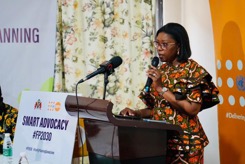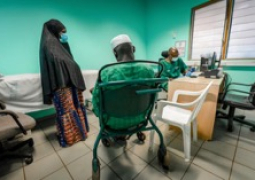
Ndey Rose Sarr made this disclosure on Tuesday at the start of a four-day SMART Advocacy forum on Family Planning held at Ocean Bay Hotel.
“Family planning is not just a health initiative; it is a cornerstone of sustainable development and human rights,” she said. “The ability for individuals and couples to freely decide on the number and spacing of their children is essential for the health, well-being, and prosperity of families and communities worldwide.”
The UNFPA Country rep also acknowledged that access to family planning services can prevent up to one-third of all maternal deaths and reduce infant mortality by up to 10%.
“In a 2022 analysis, UNFPA estimated that every dollar invested in family planning in developing countries yields a return of US$8.40,” she stated, saying: “Investing in family planning generates significant economic returns, promotes sustainable development by managing population growth, and fosters healthier communities. Moreover, family planning empowers women by giving them control over their reproductive health choices. This enables them to pursue education and work opportunities, ultimately contributing to their families' economic security and breaking the cycle of poverty. Given the transformative impact of family planning, governments play a crucial role in ensuring access to reproductive health information and services, thereby upholding fundamental human rights.”
The UNFPA Country rep also spoke about UNFPA's new family planning strategy, which includes "Expanding Choices Ensuring Rights in a Diverse and Changing World," and reflects their commitment to the 2030 agenda.
The UNFPA supplies partnership, she added, is their flagship thematic fund focused on expanding access to contraceptives and maternal health medicines.
She revealed that working closely with governments and partners, their supply partnership aims to ensure that all women and girls have access to a range of reproductive health commodities whenever they need them.
“This includes the Match Fund, which allows UNFPA to match domestic contributions for reproductive health/family planning commodities, and the introduction of a product subsidisation model (2023-2030) that will see UNFPA and governments sharing the cost of program-funded supplies,” she said.
Read Other Articles In Headlines




